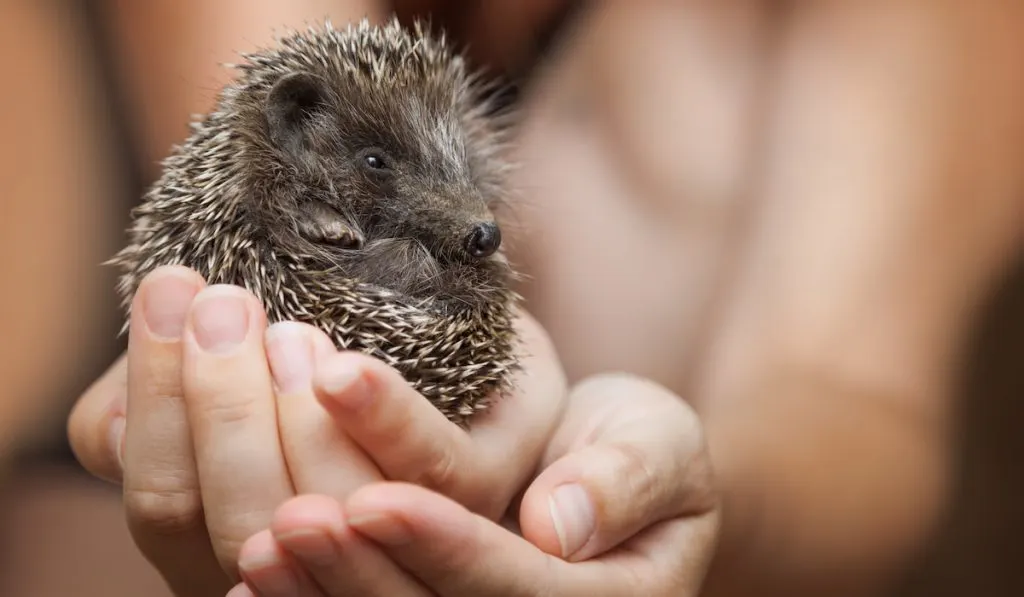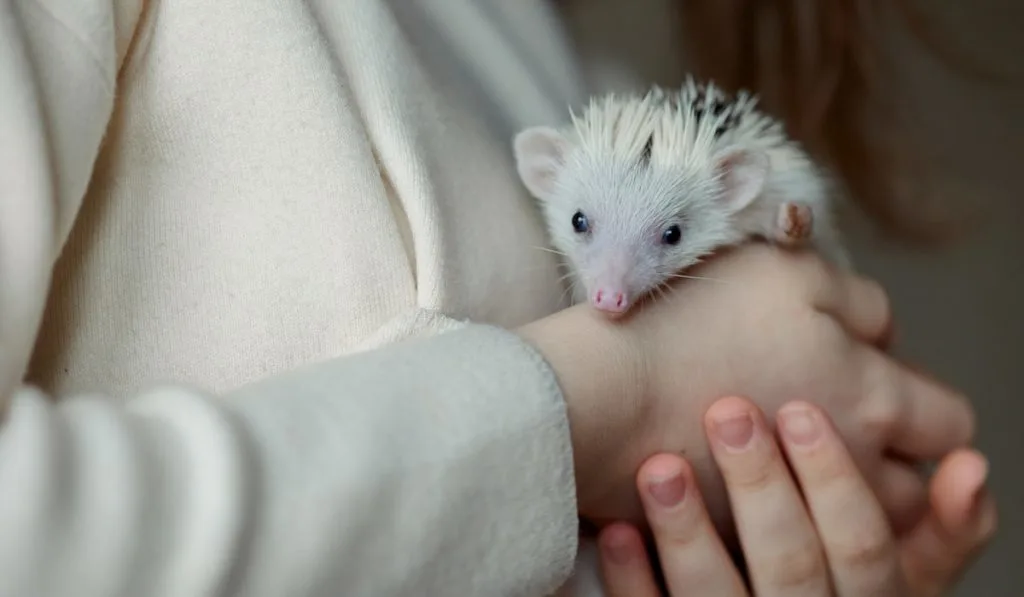Since the dawn of time, animals have found a way to worm their way into the hearts of humans. A strong bond is formed and the animal is accepted as part of a person’s life.
Over the years, cats, rabbits, birds, and many more have become companions in the households of humans, and of course, this is how the dog earned its title as ‘Man’s best friend’.
According to National Geographic, hedgehogs are carnivorous animals, weighing about 14 to 39 ounces, and usually 6-14 inches long from head to tail. They possess a coat of stiff sharp spines and are primarily wild creatures.
So, can hedgehogs be pets? Hedgehogs are primarily recognized as animals that roam freely in the wild and can be dangerous. But, in decades past, veterinarians have discovered that the African pygmy hedgehog, also known as Atelerix albiventris, is a species of hedgehog that can be raised as a pet. This species has gained popularity in various households over the years.

The African pygmy hedgehog is the smallest of the hedgehog species when comparing sizes.
They have smooth spines on their coat, which feels like the bristles on brushes. This makes them more approachable and seem less dangerous.
They also exist in various color patterns like salt and pepper, snowflake, and cinnamon. The adult size is usually 5-8 inches long, weighing on average about one pound. They are expected to live between 3 to 6 years, according to Spruce Pets.
Things to Consider Before Adding a Hedgehog to your Family.
- Behavioral Habit: Hedgehogs are nocturnal animals, meaning they are most active at night. This may be beneficial for people who work the conventional 9-5 jobs, as the animal requires little or no observation during the day. Hedgehogs are found to be unique in their behaviors, but one thing that is common with all of them is that they are anti-human interaction. They are solitary animals that do not crave human interaction or cuddling. They take a longer time to get familiar with humans. They can be hand-tamed with continuous gentle handling and constant interaction.
- Nutrition: Hedgehogs are known to be insectivorous. They eat a wide variety of insects, bugs, plants, and roots. They can be fed grain-free cat food mixed with insects and termites. Hedgehog foods are readily available for sale as they are commercially produced. Due to the fact that hedgehogs are most active at night, that is the time they are best fed. They can be fed once or twice daily.
- Healthcare: Hedgehogs should be taken to the veterinarian immediately after they are acquired. They undergo several medical examinations for both external and internal parasites. As a result of the protruding eyes of the animal, they are prone to eye injuries. They require frequent observation by their owners for any movement or behaviors that indicate the eyes have been hurt. Also, the animal is known to be prone to cancer and cardiac conditions. Therefore, regular veterinary visits to the doctor are required to increase the quality and quantity of life.
- Housing and Space Needs: Hedgehogs are very active animals, running around, moving from place to place, especially in the wild. So there is a need to recreate a semblance of space for the creature. If they are going to be kept in a cage, the cage has to be big enough for the animal to run around and get adequate exercise, but not too big, so as not to consume the entire living space. Additionally, an exercise wheel may be placed in the cage, to substitute for the lack of running space.

Pros and Cons of Having a Hedgehog as a Pet
Yes, hedgehogs can be pets. However, like everything in life, there are two sides to the coin. Below is some information on the pros and cons of being a hedgehog owner.
Pros:
- They are solitary animals and require little or no maintenance. Just a clean environment, food, and water on the table and they are good to go.
- Due to the fact that they are nocturnal animals, they tend to sleep during the day. They are great for people in the corporate world, as they can go about their day, without worrying about who will look after their pet.
- Their size makes them easy and convenient to handle.
- They are inexpensive to care for. They can live on fruits, vegetables, and cat food.
- The animal itself makes no noise, except for little purring sounds once in a while.
- They happen to be very cute and entertaining.
Cons:
- They are not common and thus, can be difficult to acquire. They are also quite expensive to purchase.
- Their nocturnal nature makes them bad companions for light sleepers and people who work from home at night. Their movements, all the running around and running on the exercise wheel, might make it very challenging to catch some sleep. It will also be difficult for people who work late at night to look after them.
- They are not ideal pets for children. Children are very active and very playful, while the animal keeps to itself and doesn’t crave human interaction. They actually take a very long time to get used to humans and adapt to their presence.
- The spines on their coat may be dangerous to people, especially children. The spines can hurt you if you don’t pick them up properly.
- The life span of the hedgehog may be grossly inconvenient for sentimental people and for people who get attached easily.
- Some hedgehogs carry diseases that can be transferred to humans. PETA records that, hedgehogs carry foot and mouth diseases that are highly contagious. They can also transmit the salmonella bacteria and also some viral fungal diseases.
- It is illegal to own hedgehogs in some regions such as California, Georgia, Nebraska, Hawaii, New York City, Omaha, and Washington D.C. Some other states have specific restrictions or require special licenses, to own a hedgehog.
Overall, hedgehogs can be great companions, easy to keep and take care of, especially if you’re a busy person with little or no time on your hands. They require little maintenance and are not expensive to take care of.

But, they can also be very challenging to acquire due to the restrictions in certain areas and may be dangerous as owners may be at risk of contracting certain diseases and infections.
Always consult your veterinarian during and after the process of adopting your hedgehog. The best way to go about the whole process of making a decision on whether to get a hedgehog or not, is to find what works for you and find a balance, to enable you build a relationship with your pet.
